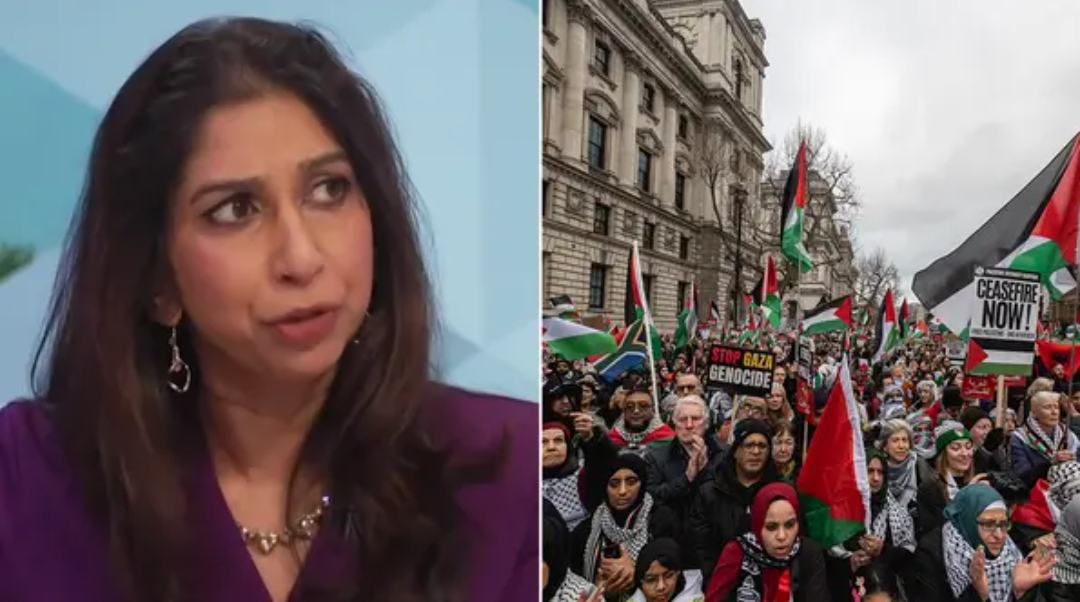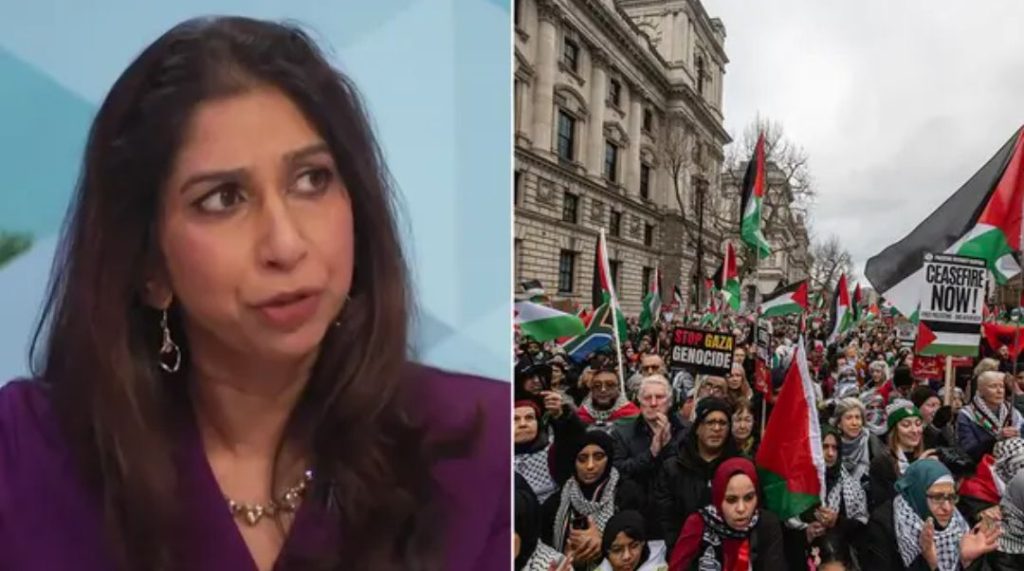
Former Home Secretary Suella Braverman has taken aim at the Metropolitan Police, accusing them of enabling what she describes as “hateful” pro-Palestine marches on the streets of Britain. Braverman, who attempted to clamp down on these demonstrations during her tenure, claims that her efforts were stifled by the police force.
The most recent pro-Palestine demonstration took place in London, drawing around 10,000 supporters who marched through the city center, demanding an immediate ceasefire in Gaza. This event adds to a series of marches that have become, according to Braverman, a “regular fixture” on British streets.

Braverman expressed her frustration at the police’s handling of these marches, asserting that she felt “powerless” in her attempts to ban them. She specifically pointed to the Metropolitan Police, blaming them for allowing what she characterizes as “months of hateful marches” to occur unabated.
According to GB News, The former Home Secretary highlighted the controversial Armistice Day march in November, where hundreds of thousands defied attempts by her and Chancellor Rishi Sunak to call for a ceasefire. Braverman described the situation as a “low point” during her tenure, revealing that the Metropolitan Police justified the chanting of “Jihad” during the protests.
She accused the police of turning a blind eye to objectionable elements within the demonstrations. During a conversation with Camilla Tominey on GB News, Braverman criticized the police response, stating, “We’ve seen people chanting Jihad, and the police turning a blind eye.” She expressed her dismay at the police justifying such chants and revealed that individuals with extremist views were advising the police on matters related to these events.
Braverman elaborated on her struggles with the Metropolitan Police during her time in the Home Office, citing a lack of authority to ban the Armistice Day march. She asserted that the police decision to allow the march to proceed was incorrect and highlighted the need for individuals in her position to have more power to address such situations effectively.
In response to Tominey’s question about the chanting of Jihad for different reasons, Braverman emphasized the need for greater scrutiny and intervention in these situations. She claimed that London and other areas have become “no-go zones” for Jewish people on multiple occasions, blaming the police for making what she believes were misguided decisions.
The protests, organized by the Palestine Solidarity Campaign (PSC), have been a recurring event, with the latest marking the eighth national march for the Palestinian people. The PSC explained that the demonstration aimed to address the aftermath of Hamas attacks on southern Israel, triggering a series of retaliatory actions between Israel and the Gaza Strip.
Scotland Yard estimated that around 10,000 demonstrators participated in the recent march, which included banners with messages such as “end the killing,” “free the children,” and “Boycott Israel.” The crowd swelled to 20,000 during the speeches in Whitehall, highlighting the significant support for the cause.
As Suella Braverman continues to criticize the police’s handling of these demonstrations, the debate over the balance between free expression and public order remains a contentious issue, raising questions about how authorities should navigate complex and polarizing events.




